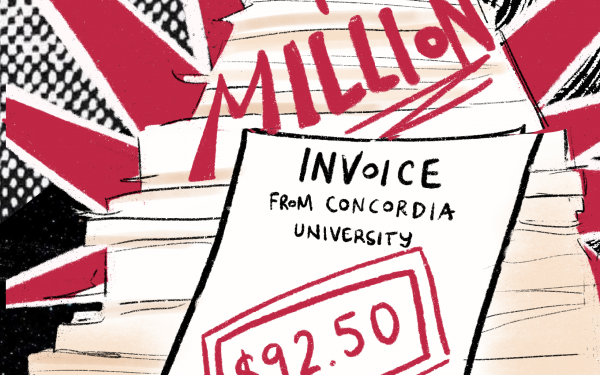It’s time to break the academic paywall
Universities should not be paying millions to access their own scholar’s research
Every year, billions of dollars from public funds finance groundbreaking research at Canadian universities, yet much of it remains locked behind corporate paywalls
In 2021, institutions spent over $300 million on journal subscriptions, forcing universities to pay twice—once to fund the research and again to access it. According to the Canadian Association of Research Libraries, this places a massive financial burden on universities as large publishing corporations profit significantly by restricting access to knowledge.
Essential scientific research has been turned into a lucrative commodity.
This contradiction prompts a critical question: Should publicly funded knowledge belong to the public, or should it enrich private publishers?
Globally, the open-access movement has gained significant momentum, advocating that publicly-funded research should be freely available. The European Commission’s Plan S initiative, which mandates immediate open access to publicly funded research, significantly expands public access to vital scientific findings.
Yet, Canadian universities, including Concordia University, still pay millions annually to access the research produced by their own faculty and students. Elsevier and Springer Nature profit massively from public research. Academics provide free labour—writing, reviewing and editing—only for publishers to sell the same work back to the institutions that produced it. This is not a scholarly ecosystem; it’s a corporate monopoly on knowledge, exploiting researchers and students alike.
Beyond financial burdens, restricted access stifles innovation and raises urgent intellectual property concerns.
Some traditional academic publishers and commentators argue that open access could threaten traditional publishing standards or dilute the quality of research dissemination. However, beyond access concerns, the current publishing system undermines researchers’ intellectual property rights. Publicly funded researchers often sign away their rights, leaving corporations in control of their work. Many publishing agreements force researchers to give up ownership of their work, leaving publishers in control and limiting the free sharing of knowledge. Instead, corporations claim ownership, forcing even the original authors to pay to access their research.
Moreover, the restriction of research knowledge disproportionately impacts underfunded institutions such as small colleges, independent scholars without university affiliations, and research communities in developing regions like Sub-Saharan Africa and South Asia. These groups face significant barriers when attempting to access crucial findings, perpetuating global inequalities in knowledge accessibility and hindering collaborative, equitable innovation.
This global imbalance is not just an international issue; it also plays out locally, affecting how Canadian universities, including Concordia, engage with knowledge production and accessibility. By funding paywalled journals, Concordia reinforces a system that exploits its researchers. If the university values accessibility, why uphold a model that keeps knowledge out of reach?
While Concordia has an open-access repository, it lags behind institutions like McGill University, whose eScholarship repository provides immediate public access to research. Concordia university could go further by mandating open-access publication for all university-funded research and providing financial incentives to researchers who prioritize public accessibility.
Strengthening Concordia’s open-access policies would ensure that publicly funded work remains accessible. Additionally, Concordia can incentivize researchers to choose open-access publishing through financial support or internal recognition programs and invest in robust institutional repositories, ensuring publicly funded work remains accessible.
Concordia must act now.
Without real policies mandating open access, any talk of “knowledge for all” remains nothing but a branding exercise. Access to knowledge shouldn't be seen as a luxury reserved for those who can afford it; it must be recognized as a fundamental right.
Concordia has made strides in increasing accessibility through its institutional repository and open-access initiatives, but more can be done to expand these efforts and ensure that research funded by public money remains open to all.
Concordia can lead this critical movement, ensuring that publicly-funded research truly serves the public interest rather than corporate profits.





_600_375_90_s_c1.jpeg)

